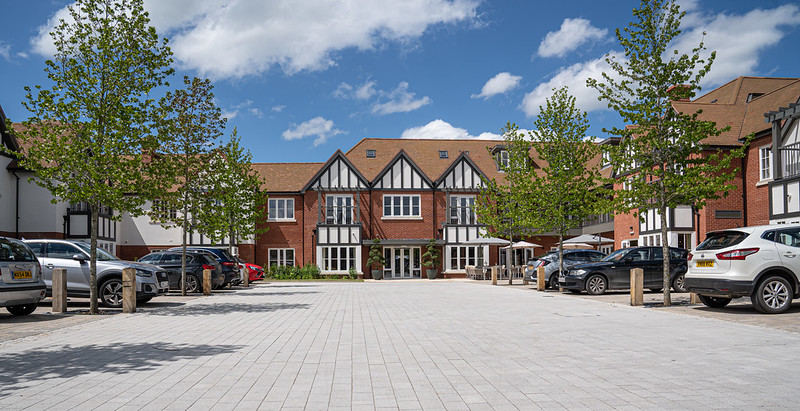Nottingham-based East Midlands Environmental Consultants (EMEC) has been enlisted by retirement developer and operator, Inspired Villages, to conduct biodiversity net gain (BNG) calculations and offer recommendations on best practice.
Established in 2017, Inspired Villages currently operates nine communities nationwide and has head offices in Edwalton Business Park, Nottingham.
Dedicated to environmental sustainability and social impact, Inspired Villages has committed to achieving Net Zero Carbon in unregulated energy across all its villages by 2030. Demonstrating this commitment, all projects initiated since 2022 underwent biodiversity Net Gain assessments, positioning the company favourably for the mandatory BNG legislation changes implemented in February 2024.
To support Inspired Villages in their environmental objectives, EMEC has been engaged to provide Baseline Biodiversity Net Gain calculations, assessing habitat units across their sites and suggesting improvements to enhance biodiversity.
The recommendations made have been tailored to each village dependant on the habitats present and their current condition and will include the planting of native species and managing habitats in such a way to enhance biodiversity. Other recommendations unrelated to BNG but that will still enhance biodiversity on the villages have also been recommended, these include the installation of bat and bird boxes and insect hotels.
Speaking on behalf of Inspired Villages, James Wilcox, Head of Sustainability, said: “Our pursuit of Net Zero is closely tied to the natural world and biodiversity is crucial for residents’ health and wellbeing.
“By aiming to be ‘nature positive by 2030,’ we strive to rejuvenate ecosystems rather than witness their decline. With EMEC’s assistance, we’re committed to ensuring our new developments create more valuable natural spaces than they did previously.”
Jake Hill, Ecologist at EMEC, said: “Collaborating with Inspired Villages on this project has been extremely rewarding. Enhancing biodiversity not only benefits the environment but also enhances the quality of life for village residents.”



